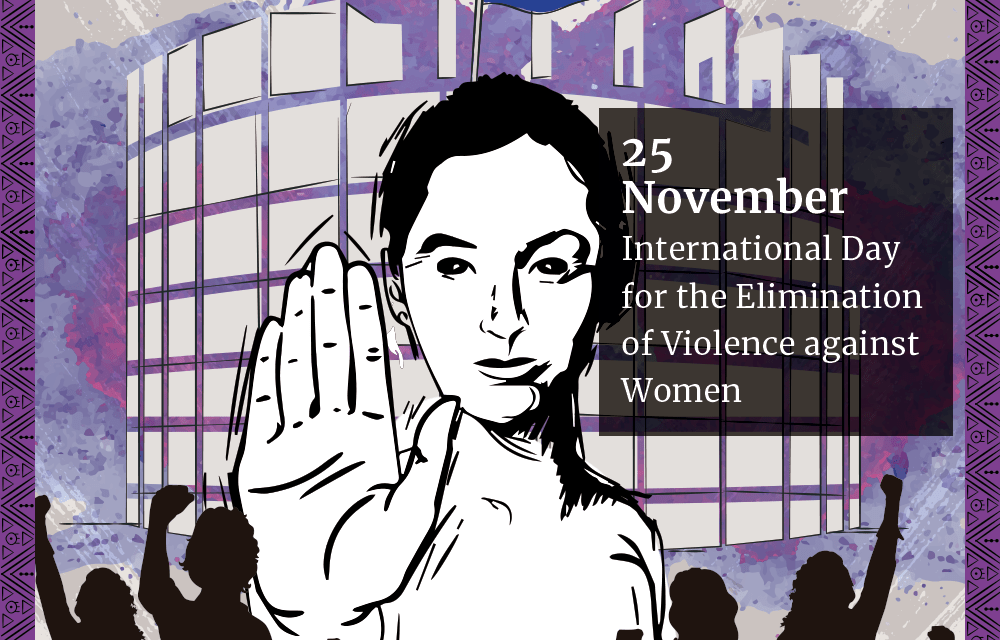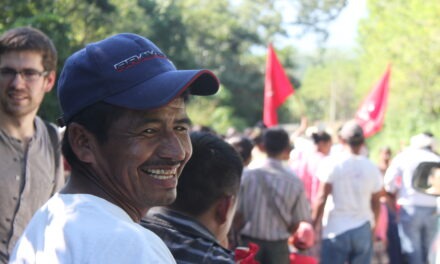OPEN LETTER TO EU MEMBER STATES
Brussels, 25 November 2021
Subject: Urgent call to end to violence against women and to include a gender perspective in future Due Diligence legislation
The year 2020 marked 25 years since the Fourth World Conference on Women held in Beijing, where 189 countries adopted the Beijing Platform for Action as a policy framework towards gender equality and the rights of women and girls. This plan enhances efforts to achieve the 2030 Agenda for Sustainable Development, which recognizes gender equality as one of its strategic objectives.
The usual challenges that women face have been aggravated by the health crisis caused by Covid-19. The multidimensional vulnerabilities experienced by women during the reaction phase, and those that will be experienced during the recovery phase, must be integrated into the agendas of governments, international cooperation and civil society.
This pandemic has exposed inequalities and vulnerabilities within various sectors of society, which mean that priorities need to be re-established that recognize caring for life as a central element. The pandemic has dramatically exposed the dismantling of public health systems, which benefits the neoliberal privatized services existing in a large part of Latin American countries. Covid-19 has also led to increased labour for women who, in addition to assuming care work, have also had to take on educational responsibilities due to the closure of schools. On the other hand, the precarious employment situation, even more serious for those women who make their living doing informal work, and difficulties in obtaining food, have increased poverty in families where women are the heads of household. Finally, insufficient and weak programs for the prevention of and attention to gender-based violence have enabled a 55% increase in cases of VAW in the region, a return to levels not seen for 15 years, making it impossible to comply with the commitments assumed in the SDGs.
Added to this are persistent negative impacts caused by the actions of companies, significantly affecting the local economy, the environment, access to land and livelihoods, making the living conditions of women and girls even more precarious and increasing gender-based discrimination.
The European Union has taken positive steps through its EU Gender Equality Strategy 2020-2025 as well as its Gender Action Plan, setting out its commitments and actions for the next five years for its internal and external policy. In order to ensure legislative coherence between the above-mentioned instruments and to achieve full compliance with international gender commitments, it is essential that the EU also develop ambitious Due Diligence legislation. This involves integrating approaches to specific risks, high-risk contexts and supply chains, and how these affect women and girls and increase gender-based discrimination.
In this context, we would like to ask the EU Member States in their foreign policy relations with Latin America, to:
- Ensure that governments in the Latin American Region comply with minimum standards of democracy and guarantees for access to full enjoyment of human rights for all women and girls and for women human rights defenders, as established by international agreements on the subject.
- Build and support common positions in the European Union that confront and put a stop to narratives advocating for a regression of women’s human rights and gender justice at the international and regional level. Prioritise the implementation of political dialogue mechanisms in the Agreements between both regions, including the participation and voices of women.
- Guarantee mechanisms to identify gender-specific trends and patterns in actual or potential adverse impacts that have been overlooked in Due Diligence processes, while also assessing whether grievance mechanisms are gender-sensitive, taking into account intersectionality and obstacles that may prevent women from accessing these mechanisms.
- Expand the scope and implementation times of programs such as the Spotlight Initiative, ensuring that feminist and women’s organizations, as well as collectives of peasant farming, rural, indigenous and Afro-descendant women have direct access to resources to address priority situations in each country, taking into account the consequences of the pandemic, the impacts of climate change and including broad policies to guarantee flexibility.
- Lead debates on the pandemic, including intersectional and feminist perspectives from the Global South in all speeches and decisions made.
- By directly funding programs developed by civil society organizations, guarantee effective access for women and girls to education, including comprehensive sex education, and to comprehensive sexual and reproductive health care, as well as sexual and reproductive rights.





